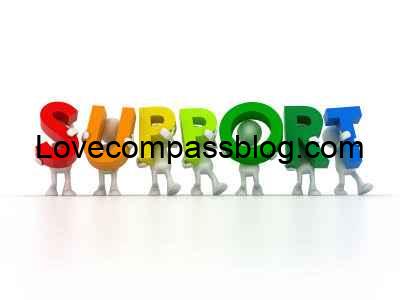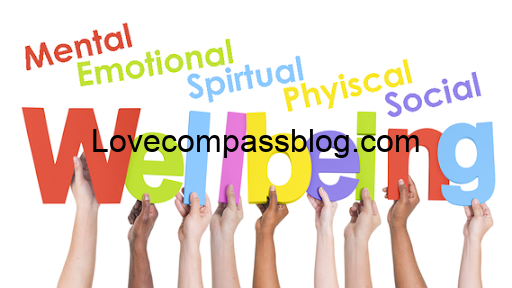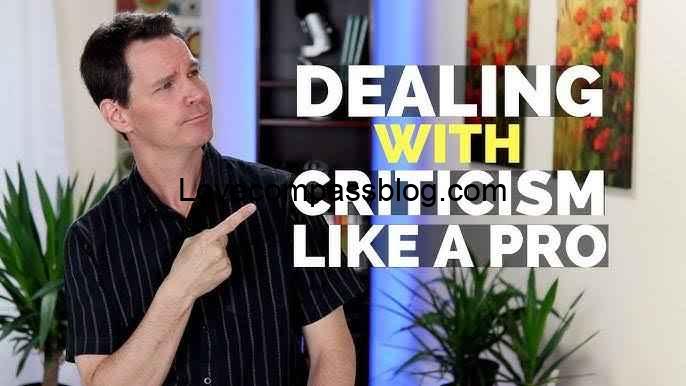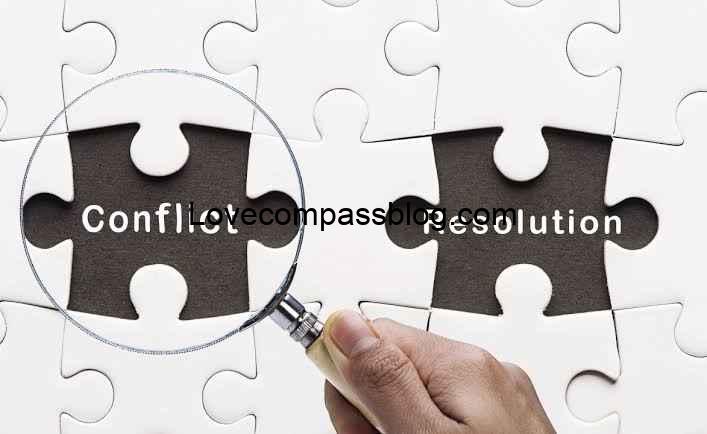Conflict Resolution in Relationships: A Comprehensive Guide
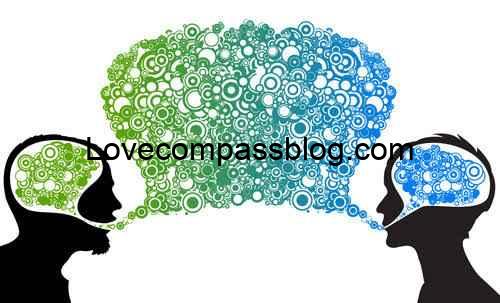
In every relationship, conflicts are inevitable. Differences in personalities, experiences, and expectations often lead to disagreements, which can range from minor misunderstandings to significant disputes. While some view conflict as a negative aspect of relationships, it actually presents an opportunity for growth when managed properly. Conflict resolution is the process by which couples work through their differences to find a mutually acceptable solution, thereby strengthening their bond and ensuring long-term relationship health.
Unresolved issues within a relationship are often a source of chronic stress and can significantly erode the foundation of trust and mutual respect. These issues arise when conflicts are left unaddressed or when attempts at resolution are inadequate. Over time, unresolved issues can manifest as resentment, emotional distancing, or recurring arguments over seemingly minor matters. The longer these issues persist, the harder they become to resolve, making it essential to address conflicts as they arise. The impact on the relationship can be profound, leading to a breakdown in communication, intimacy, and emotional connection.
Identifying and Acknowledging Conflict

Identifying the Source of Conflict
To effectively resolve a conflict, it is crucial first to identify its root cause. This process involves introspection and open dialogue to uncover the underlying issues driving the disagreement. Often, what appears to be a surface-level argument about household chores or financial management may actually be rooted in deeper concerns, such as a lack of appreciation, insecurity, or differing values. Identifying the true source of conflict allows couples to address the core issue rather than focusing solely on the symptoms, which is essential for achieving a lasting resolution.
Common sources of tension in relationships include communication breakdowns, unmet expectations, financial stress, and differences in personal values or life goals. By pinpointing the exact cause, couples can begin to address the issue in a targeted and effective manner.
Acknowledge the Conflict
A crucial step in resolving any conflict is acknowledging its existence. Both partners must recognize that a problem exists and that it needs to be addressed. Ignoring or downplaying conflicts can lead to simmering resentment and larger issues in the future. By acknowledging the conflict openly, couples create a space where both parties feel safe to express their concerns and emotions. This mutual acknowledgment is the first step toward finding a resolution that satisfies both partners.
Creating a safe environment for discussion is key. This means approaching the conversation with a mindset focused on understanding and resolution, rather than winning or proving a point. Encouraging open dialogue and being receptive to your partner’s perspective can set the stage for a productive conversation.
Types of Conflict in Relationships
Understanding the nature of the conflict is also important. Conflicts in relationships can be broadly categorized into healthy and unhealthy conflicts. Healthy conflicts occur when both partners engage in a respectful exchange of ideas and emotions, with the goal of reaching a resolution that benefits the relationship. These conflicts can actually strengthen the relationship by fostering deeper understanding and mutual respect.
Unhealthy conflicts, however, are characterized by destructive behaviors such as criticism, contempt, defensiveness, and stonewalling. These behaviors can damage the relationship and lead to a cycle of negativity and disengagement. Recognizing when a conflict is veering into unhealthy territory is crucial for taking corrective action, such as de-escalating the situation or seeking outside help.
Communication Strategies for Conflict Resolution

Effective Communication in Relationships
Communication is the foundation of conflict resolution. How couples talk to each other during disagreements greatly influences the outcome. Effective communication involves not just speaking clearly but also listening actively. Active listening means fully concentrating, understanding, and responding to what your partner is saying. It’s about being present in the conversation, showing empathy, and avoiding distractions.
When partners engage in active listening, they validate each other’s feelings and perspectives, which can de-escalate tensions and pave the way for a more productive discussion. This approach helps both partners feel heard and respected, which is essential for resolving conflicts amicably.
Enhancing Communication Skills
To effectively manage conflicts, it’s important to continually refine and enhance communication skills. One effective technique is the use of “I” statements. For example, instead of saying, “You never listen to me,” you might say, “I feel unheard when we talk about important issues.” This approach reduces defensiveness and keeps the focus on your own feelings rather than placing blame on your partner.
Another key aspect is emotional intelligence, which involves recognizing and managing your own emotions while also being sensitive to your partner’s emotions. Emotional intelligence in communication helps prevent conflicts from escalating and ensures that discussions remain focused and constructive.
Communicate Calmly
Remaining calm during conflicts is critical for effective communication. When emotions are heightened, it’s easy for discussions to spiral into arguments. Staying calm allows you to think clearly and respond thoughtfully rather than reacting impulsively. Techniques for maintaining calm include taking deep breaths, pausing before responding, and, if necessary, stepping away from the conversation to regain composure.
Avoiding blame is also important. Instead of focusing on what your partner did wrong, discuss how the issue is affecting the relationship and what can be done to resolve it. This shift in focus from blame to resolution helps keep the conversation constructive and forward-looking.
Conflict Resolution Techniques

Compromise and Finding Common Ground
Compromise is a fundamental aspect of conflict resolution. It involves both partners making concessions to reach a solution that is acceptable to both. Finding common ground—areas where both partners agree—can help facilitate compromise. For instance, if one partner values financial security while the other values spontaneity, they might agree on a budget that allows for both savings and occasional splurges.
Compromise requires flexibility and a willingness to prioritize the relationship’s overall health over individual desires. By focusing on shared goals and values, couples can find solutions that satisfy both parties.
Agree to Disagree
Not all conflicts have a clear resolution. In some cases, partners may hold fundamentally different beliefs or values that cannot be reconciled. In such instances, agreeing to disagree can be the best course of action. This approach involves accepting the differences without allowing them to undermine the relationship. It requires mutual respect and a recognition that diversity in perspectives can coexist within a healthy relationship.
Agreeing to disagree doesn’t mean avoiding the issue; rather, it’s about acknowledging the difference and choosing to focus on the aspects of the relationship that bring you closer together.
Conflict De-escalation Techniques
When conflicts become particularly intense, it’s important to have de-escalation strategies in place. One effective technique is taking a time out. If a conversation is becoming too heated, both partners should agree to take a break and return to the discussion after they’ve had time to cool down. This prevents the conversation from escalating into a full-blown argument and allows both parties to approach the issue with a clearer mind.
Another de-escalation technique is to soften your startup. This involves beginning the conversation in a non-confrontational manner, which sets a positive tone for the discussion. For example, instead of starting with, “You’re always late,” you could say, “I’ve noticed we’ve been having some timing issues, and I’d like to discuss how we can address that.” A soft startup helps reduce defensiveness and encourages a more cooperative dialogue.
Conflict Mediation Strategies
In some cases, couples may find it challenging to resolve conflicts on their own, especially if the issues are deeply rooted or particularly complex. In such situations, mediation can be a valuable tool. Mediation involves a neutral third party who helps facilitate the conversation and guide the couple toward a resolution. This mediator can be a professional, such as a therapist or counselor, who is trained in conflict resolution strategies.
Mediation is especially useful when emotions are running high or when previous attempts at resolution have been unsuccessful. A mediator can help both partners express their concerns in a structured environment and work toward a mutually acceptable solution.
Managing Emotions During Conflicts
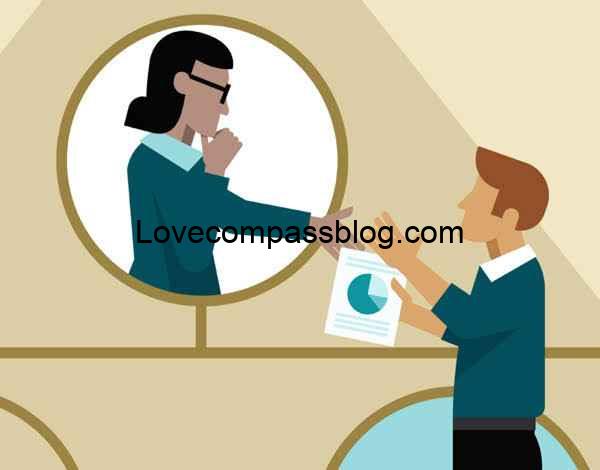
Emotional Regulation in Conflicts
Managing emotions during conflicts is crucial for preventing escalation and ensuring that the discussion remains productive. Emotional regulation involves recognizing your emotional triggers and employing strategies to stay calm and focused. Techniques such as deep breathing, mindfulness, and taking breaks can help manage emotions during heated discussions.
Being aware of your emotions and how they influence your behavior can prevent conflicts from spiraling out of control. It also allows you to respond more thoughtfully, which can lead to a more constructive outcome.
Showing Empathy After a Conflict
Empathy is a powerful tool in conflict resolution. After a disagreement, it’s important to show empathy toward your partner by acknowledging their feelings and expressing understanding. This doesn’t mean you have to agree with everything they say, but it does mean recognizing their perspective and validating their emotions. Empathy helps heal emotional wounds and reinforces the emotional connection between partners.
Expressing empathy can be as simple as saying, “I understand that this situation has been difficult for you,” or “I can see how this issue is important to you.” These statements can go a long way in rebuilding trust and fostering mutual respect.
Rebuilding Trust and Emotional Connection
Conflicts, especially those that are intense or prolonged, can damage trust and emotional connection in a relationship. After resolving a conflict, it’s important to focus on rebuilding this trust. This process might involve having open and honest conversations about what happened, apologizing where necessary, and making a concerted effort to reconnect emotionally.
Rebuilding trust takes time, and it requires consistent effort from both partners. Engaging in activities that strengthen your bond, such as spending quality time together, expressing appreciation, and being supportive, can help restore the emotional connection and reinforce the relationship’s foundation.
Long-term Strategies for Healthy Conflict Resolution
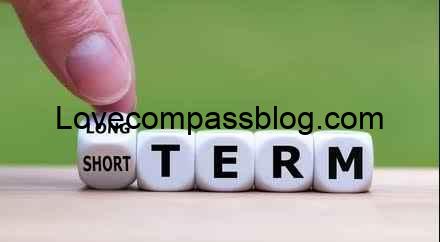
Preventing Future Conflicts
While conflicts are a natural part of any relationship, there are strategies couples can employ to reduce their frequency and severity. Prevention begins with open, ongoing communication. Regularly discussing potential stressors, concerns, and expectations helps address issues before they escalate into conflicts. For example, setting aside time each week to check in with each other about the state of the relationship can help identify and resolve minor issues early on.
Another important strategy is managing expectations. Many conflicts arise from unmet or unspoken expectations. By clearly communicating your needs and expectations, and being receptive to your partner’s, you can prevent misunderstandings and reduce the likelihood of conflict.
Additionally, prioritizing emotional intimacy can help prevent conflicts. When both partners feel connected and understood, they are less likely to engage in negative patterns of interaction. Activities that promote bonding—such as shared hobbies, regular date nights, and thoughtful gestures—can strengthen the relationship and make it more resilient to conflict.
Developing Conflict Resolution Skills
Conflict resolution is not an innate skill but one that can be developed and refined over time. Couples can benefit from learning various conflict resolution techniques, such as effective communication strategies, emotional regulation methods, and problem-solving skills. Workshops, books, and online courses on relationship management can provide valuable tools and insights.
Practicing these skills regularly is essential. For instance, role-playing common conflict scenarios and discussing how to handle them can prepare couples for real-life disagreements. Moreover, seeking feedback from each other after a conflict can help both partners improve their approach to future disputes.
Consistent practice and a commitment to personal growth are key to developing the skills necessary for healthy conflict resolution. Over time, these efforts will lead to a more harmonious relationship, where conflicts are resolved more efficiently and with less emotional turmoil.
Conflict Resolution in Long-term Relationships
As relationships evolve, the nature of conflicts may change. Long-term relationships often face unique challenges, such as changing life circumstances, evolving priorities, and the deepening of ingrained habits. For example, couples may experience conflicts related to career changes, parenting styles, or caring for aging parents.
Adapting conflict resolution strategies to these changing dynamics is crucial. Couples should regularly reassess their approaches to conflict resolution, considering factors such as age, life stage, and personal growth. What worked in the early years of a relationship may need to be modified as the relationship matures.
Long-term couples might also benefit from ongoing relationship education, such as attending workshops or couples therapy, even when things are going well. This proactive approach can help reinforce conflict resolution skills and prevent potential issues from escalating.
Additional Resources
Couples Therapy and Professional Mediation
When conflicts become too entrenched or complex to resolve independently, seeking professional help can be invaluable. Couples therapy provides a structured environment where both partners can explore their concerns with the guidance of a trained professional. Therapists can offer new perspectives, teach effective communication techniques, and help couples uncover and address deep-seated issues.
Professional mediation, on the other hand, is particularly useful in situations where a neutral third party can help facilitate difficult conversations. Mediators are trained to guide discussions in a way that is fair and balanced, helping both partners reach a mutually acceptable resolution.
Both therapy and mediation are not just for resolving crises but can also be preventive tools. Engaging in therapy or mediation early, when conflicts are still manageable, can help couples avoid more serious issues down the line.
Books and Online Resources
In addition to professional help, there are numerous books and online resources that provide valuable insights and strategies for conflict resolution in relationships. Some highly recommended books include:
- “The Seven Principles for Making Marriage Work” by John Gottman, which offers practical advice based on decades of research into what makes relationships succeed or fail.
- “Crucial Conversations: Tools for Talking When Stakes Are High” by Kerry Patterson, which provides strategies for handling difficult conversations effectively.
- “Hold Me Tight: Seven Conversations for a Lifetime of Love” by Dr. Sue Johnson, which focuses on building emotional bonds and understanding each other’s emotional needs.
Online resources, such as relationship blogs, forums, and courses, also offer a wealth of information. Websites like The Gottman Institute and Psychology Today provide articles, tips, and tools that can help couples navigate conflicts and improve their relationships.
These resources can be particularly helpful for couples who prefer self-directed learning or who want to supplement professional guidance with additional information and techniques.
Conclusion
Conflict resolution is an essential skill for maintaining a healthy, fulfilling relationship. By identifying and acknowledging conflicts, communicating effectively, and employing various resolution techniques, couples can navigate disagreements in a way that strengthens their bond. Managing emotions, showing empathy, and rebuilding trust are also critical components of a healthy conflict resolution process. Developing these skills over time leads to more harmonious relationships, where conflicts are seen as opportunities for growth rather than threats to stability.
Encouragement for Continued Learning
Conflict resolution is an ongoing journey that requires continuous effort and commitment. Couples are encouraged to keep learning, practicing, and refining their conflict resolution skills. Whether through professional help, self-directed learning, or simply open and honest communication with each other, the pursuit of better conflict resolution will undoubtedly enhance the quality and longevity of any relationship.
By approaching conflict with the right mindset and tools, couples can transform challenges into opportunities for deeper connection and mutual understanding, ensuring a relationship that is both resilient and rewarding.

